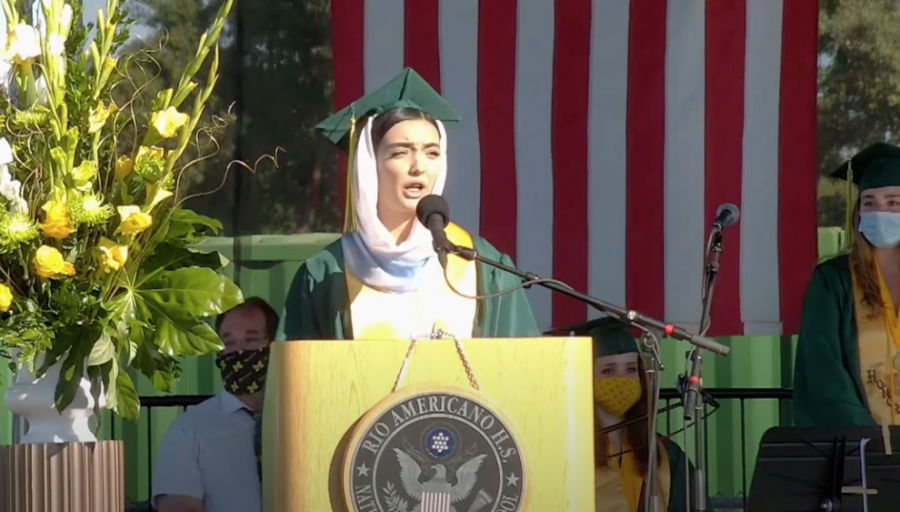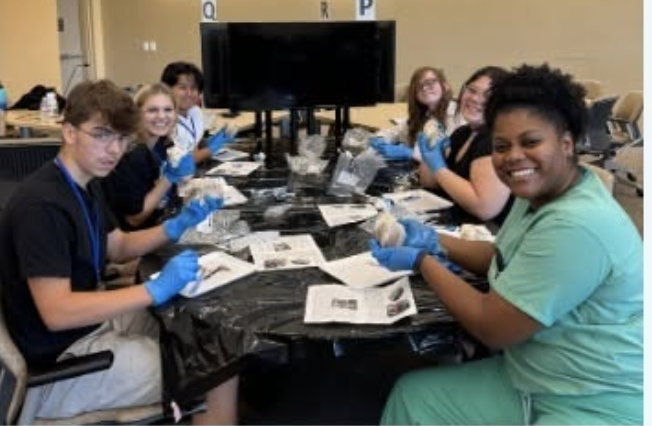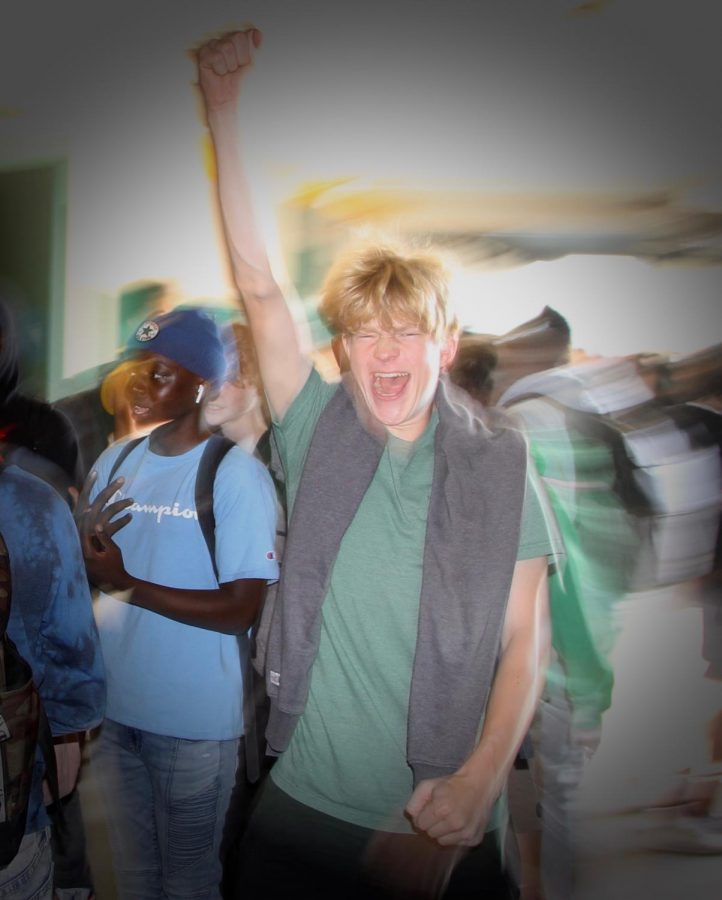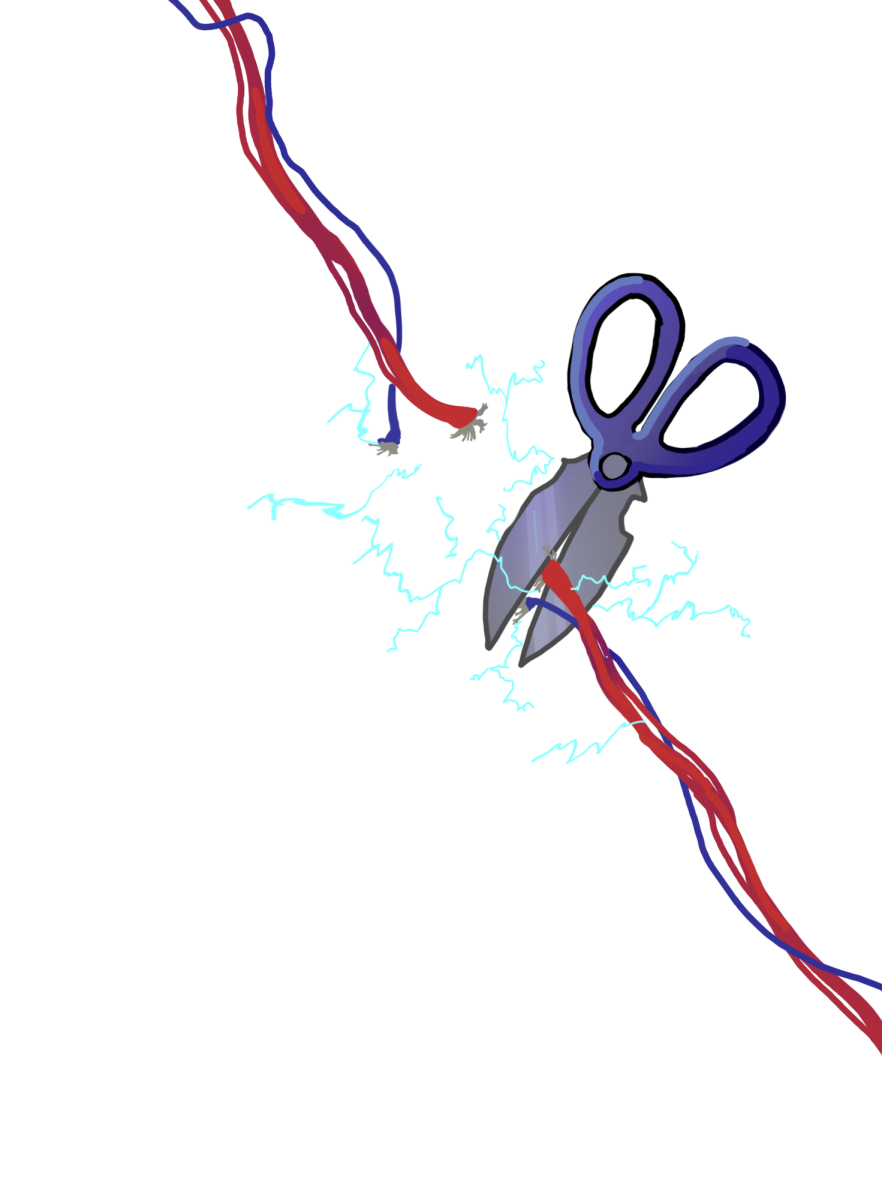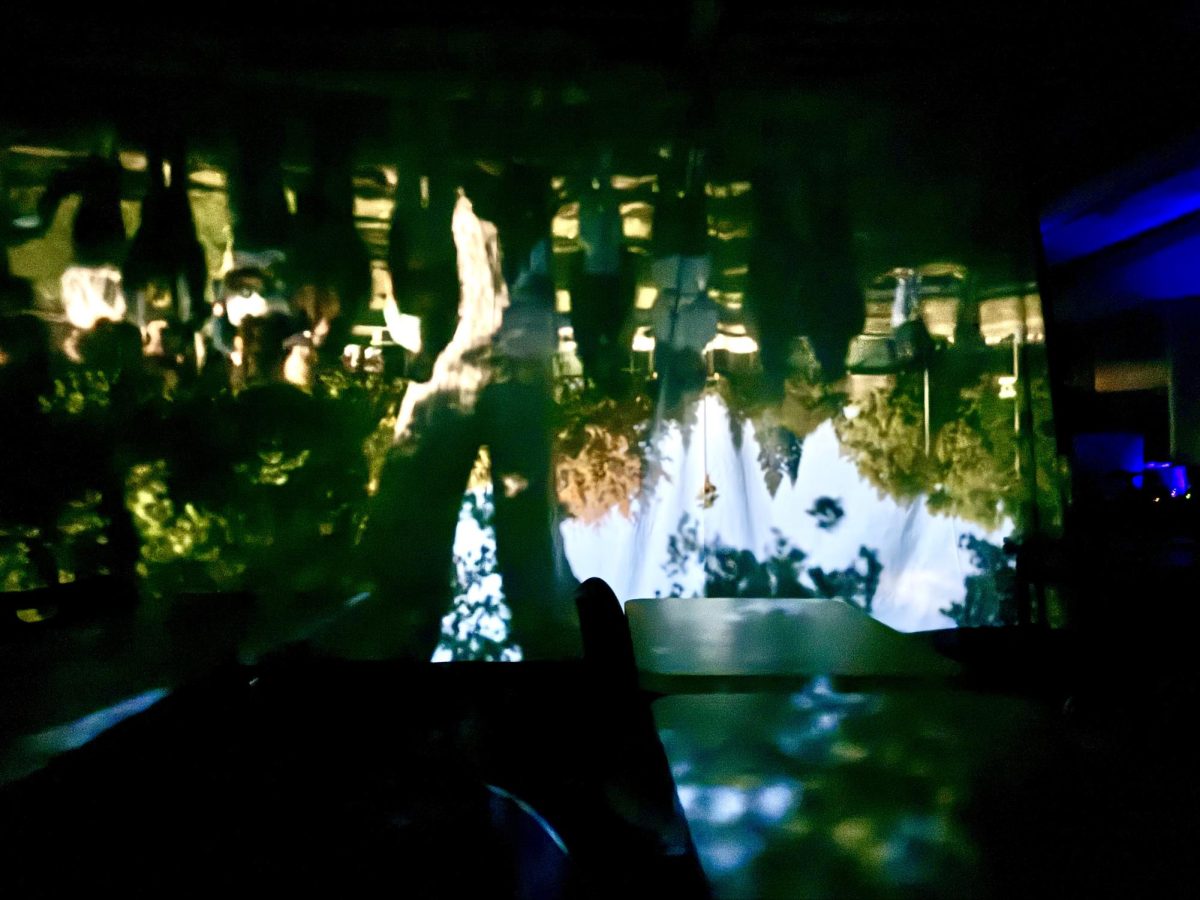Verdict Is In: Mock Trial and Moot Court Teams Offer Realistic Law Experience
For students interested in pursuing a career in law, Moot Court and Mock Trial are two clubs on campus available to them. Due to their similar nature, they are often confused with one another.
The Moot Court program took a hiatus for a few years, but four years ago, students brought back the program. Mock Trial however, has been a part of the school’s community for 42 years.
Mock Trial reviews a fictional court case where students must prove or disprove whether or not a person or group is guilty of an alleged crime. Students participate in the trial by playing different roles and present the case in front of a real judge.
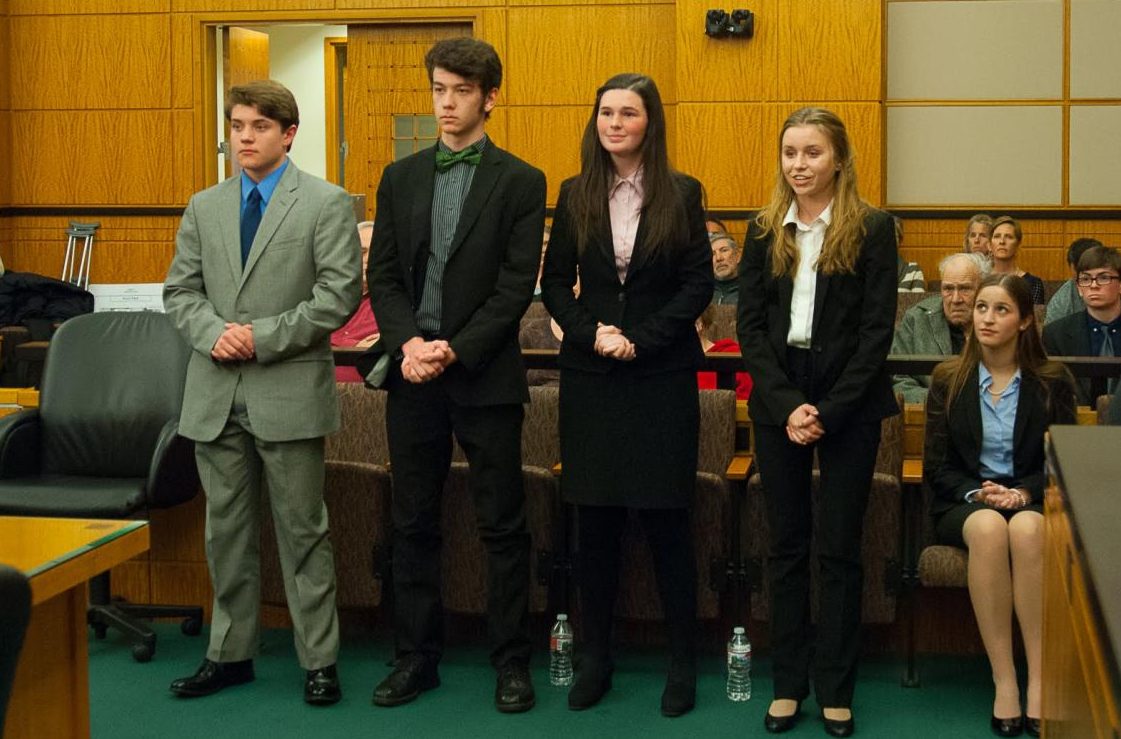
The first role taken in mock trial is the pretrial attorney: their job is to win the pretrial motion and they argue for, or against, a piece of evidence that is controversial in the case.
Teams also have attorneys, who question the witnesses and make opening and closing statements.
Other roles include witnesses, bailiffs, and clerks. Just like a real life courtroom, witnesses assist in providing more evidence for attorneys; clerks in mock trial keep time; bailiffs monitor people in the courtroom to make sure there are no disruptions as well as swear in the witnesses before they go on the witness stand.
Moot Court also addresses a fictional case, but instead of assuming roles, all students on the team argue constitutional law. Students are provided with a fact pattern and then given three issues that must be argued using non-fictional court cases. Students then address both sides of a single issue and present their cases in front of a panel of judges. Moot Court cases generally relate to current issues; recent cases being about protesting in schools and bullying.
Moot Court members are coached by U.S. district attorneys during their practices while Mock Trial members are coached by a trial attorney in their practices and scrimmages.
In Mock Trial, students practice with the help of a case packet which gives them witness statements that they use to support their case. It also outlines all of the rules of everything a student can do during the trial. Moot Court students are given a packet with only past cases that they can use, all other previous knowledge must be disregarded.
In Moot Court students must address three issues and a rebuttal. Each year the arguments for the three issues change based on the case. For instance, issue one can be regarding whether or not bullying took place and issue two can be discussing if the school was neglecting the students being bullied.
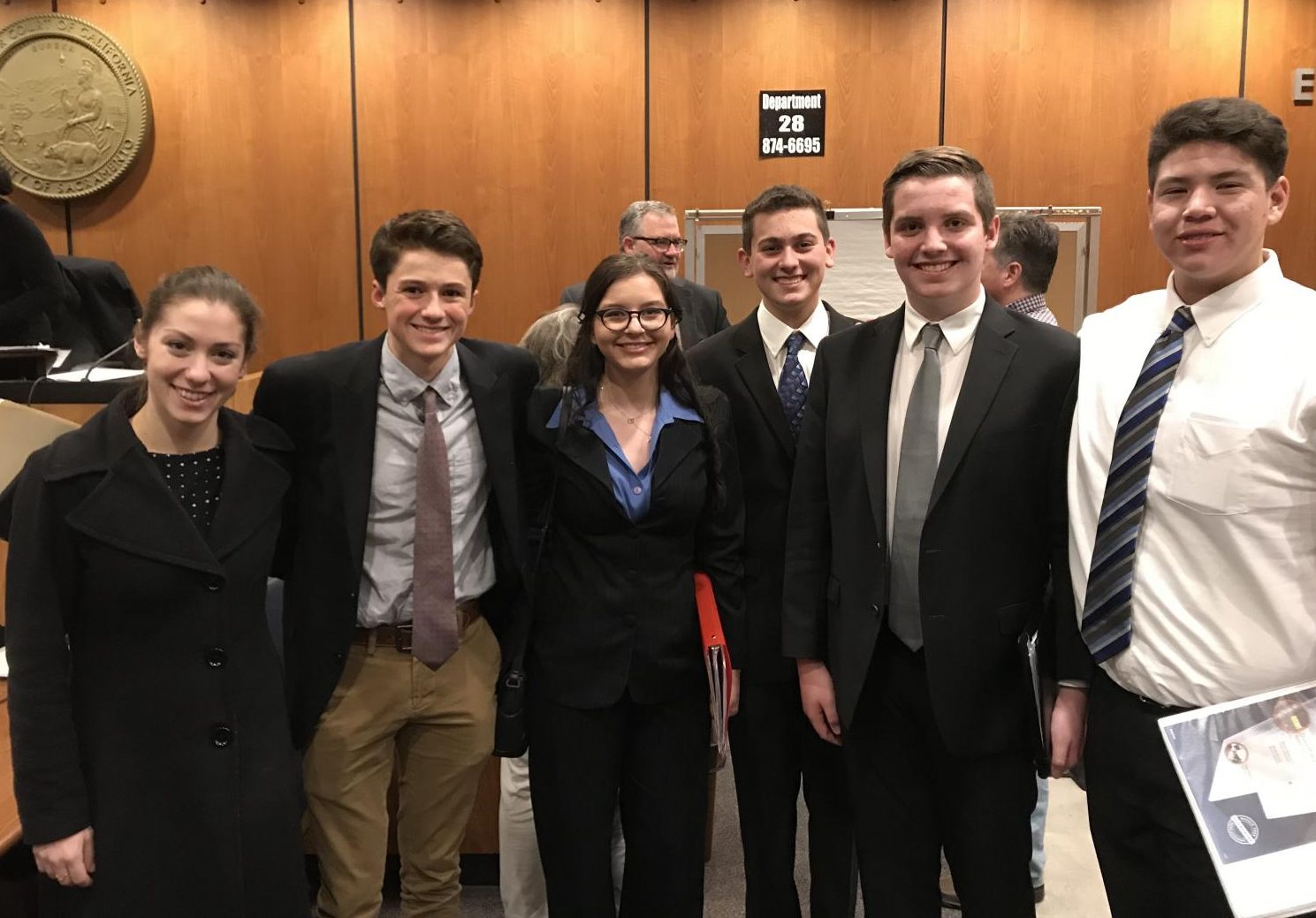
The three issues also have two sides to them so a student has to understand both sides of the argument so when competitions occur, he or she can be prepared to give either side.
Rebuttal is addressed at the end of the opposing team’s last argument on issue three. The rebuttal student must pay attention during the competitors arguments and argue what each issue stated.
Both clubs get their case around September/October and they present it at the end of February.
Students have different reasons for joining the teams. Senior Ben Davis is a member of the Moot Court team and has been for the past three years.
Davis joined because “Moot Court tends to be more about analyzing a case and constructing an argument.” Davis said “it’s the best preparation for being a lawyer, whereas Mock Trial is a bit more acting.”
Scrimmages and practices are held throughout the year so students can work out their arguments.
“Mock Trial is a big time commitment, recently we’ve been practicing around 13 hours a week,” said sophomore, Amelia York. “I don’t think anyone would be able to do it if they didn’t like it.”
This upcoming season, Moot Court is hoping to advance to semifinals for the first time since the club has been brought back to Rio. Team members are also looking for students to join so the club can continue to grow. Mock Trial is hoping to advance to state championships this season to end the five year streak of not attending.




